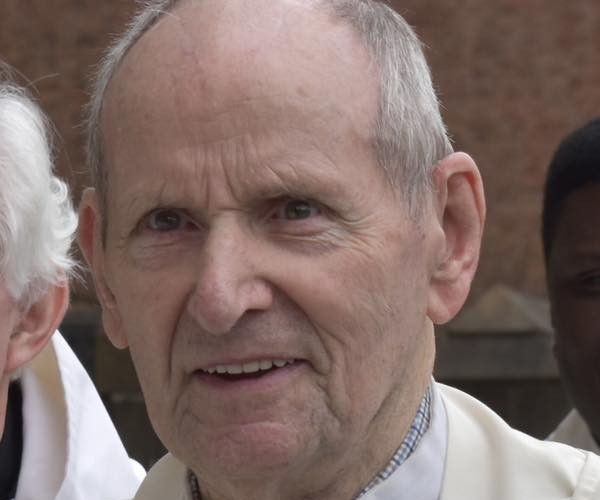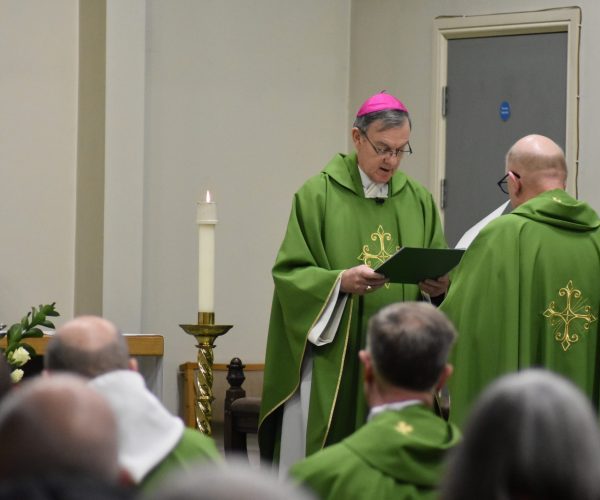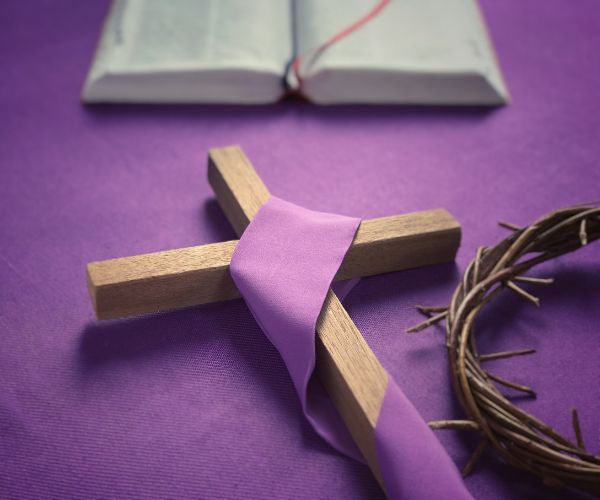
The Prophets Series: Zephaniah and a God that dances for joy
Saturday 11th December 2021By Fr Christopher Lough
On the third Sunday of Advent, we hear the third of the four prophets we meet in the first reading of our Sunday Advent Masses this year – Zephaniah. It is also ‘Gaudete Sunday’ – ‘Rejoice!’ – when we light the pink candle on our Advent wreath and the priest may even wear pink vestments rather than purple.
The Book of Zephaniah is very short, only three chapters, and we hear today from the final part of the last chapter. “Shout for joy, daughter of Zion!” it begins – a great opening to our readings for Gaudete Sunday. It also links well with St Paul’s encouragement to the Philippians in our second reading to “Rejoice in the Lord always!” (“I want you to be happy, always happy in the Lord” in the Jerusalem Bible translation we hear in church.)
But Zephaniah does not start like that. In his first two chapters he warns the people in graphic poetry of the fate that awaits them because they have turned away from worship of the one true God.
Zephaniah wrote at some time during the reign of King Josiah (640-609 BC). Josiah’s father, Manasseh, had been a disastrous king. He was completely in thrall to the Assyrians, and he not only allowed, but encouraged worship of foreign gods. Josiah succeeded to the crown as a young boy. This could well be the time when Zephaniah preached or wrote. When he grew up and began to rule in his own right, Josiah instigated a great religious reform and revival, repairing the temple and destroying many pagan shrines. He is remembered as the greatest King of Judah and Israel after David himself (2 Kings 23:25). Sadly, he was killed in battle against the Assyrians and it appears that his reform died with him.
Zephaniah’s prophecy may have been written in one piece. It has a structure and flow that suggests this. Or it could have been delivered as a series of revivalist sermons in the Jerusalem temple in the early days of Josiah’s reform.
The great theme of Zephaniah is the coming “day of the Lord”. In the opening chapter this is “a great and terrible day”. In fact, this part of his book is the base text for the “Dies Irae”, that terrifying medieval poem that has been set to music by so many great composers. This will be a day of divine judgement against sinners who fail to repent. God, Zephaniah says, will “search Jerusalem with lamps”, “to find the guilty and punish them drastically”. He also preaches God’s wrath against foreign nations, with Assyria taking pride of place.
But Zephaniah then turns to words of encouragement for those who have remained faithful. ‘Seek the Lord while he is still to be found,’ he says. He promises that God will “dwell in your midst” and forgive the sins of Judah. God will restore those who have been sent into exile and bring lasting peace to the land. He urges patience and he promises that a holy remnant of Israel will survive, purified from sin and the worship of false gods.
He finishes his work with the beautiful passage we hear this Sunday, urging the daughter of Jerusalem to rejoice with all her heart and not to be afraid in the face of danger, because the Lord her God is in her midst, a God who loves her still. He says God “will dance with shouts of joy over you as on a day of festival.” It is an amazing and wonderful image of a God who dances like you would at a party because the people have come back to him.
Next Sunday, in the Gospel for the fourth Sunday of Advent we will meet two “daughters of Zion”, Mary and Elizabeth, who rejoice in the Lord their God, who do not fear, and who recognise in their midst a God who loves them. And we will meet two unborn children, one of whom dances for joy in the womb at the nearness of the coming “day of the Lord”.
Click the link below to read more from our Advent Prophet Series:
Jeremiah, Exile, and the Promises of God
Baruch and the Message of Hope and Consolation



